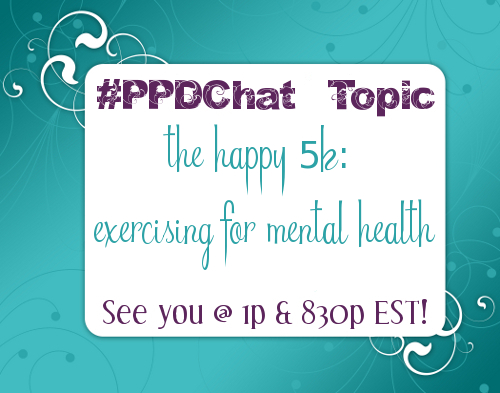Lately, I’ve been getting this question more often than any other question.
“Do the thoughts ever go away?”
A close second is “Does it ever get better?”
Every time I hear these questions, I tense up. I don’t know how to respond more often than not. So I take a deep breath and answer according to my experience. Thing is, not everyone’s experience’s are the same, a point I try to emphasize. With Postpartum, we all drag our own history to the table, our support access, our thoughts, our demons. We don’t all look the same in the mirror at the end of the day.
My youngest child is three years old.
The daughter I had my last Postpartum OCD experience with turns 5 on Monday.
I still have thoughts.
Not so much about harming the children. But “What if this or what if That” or “What if I…”
Many of these thoughts are remnants of my over-extended stay in Postpartumville.
And that’s the key to realizing that I am no longer there… the ability to recognize these thoughts as remnants, not recorded loops intensely playing over and over and over and over and over in my head.
Now? I can stop them before they even get past “What if….” most of the time.
Sometimes they sneak past the “What if…” and I get into what I call the “meat” of the thought. The event, the horror, the THING of which I should not be thinking. The thing which would make a good mom turn ghost white if I were to share this thought with her. This dark thought which, right now, is swirling about in my head, how do I sit next to another mom and try to act as if everything is okay? They spring into my head everywhere. At church, in the car, at home, outside, at the grocery store.. everywhere.
How do I make them stop?
I physically shake my head back and forth and say “NO!” outloud. Seriously. Sometimes I’ll just shake my head back and forth and tell myself NO silently if I were with others.
Some women aren’t able to stop things so easily as that though. Many women find it helpful to start listing state capitols, colors, states, the alphabet, or a list of any sort. Doing a challenging puzzle like Sudoku or a word search has helped some. It’s also interesting to note here that Tetris has been proven to be a valuable resource/therapy for soldiers with PTSD. It may also work for moms struggling with OCD and intrusive thoughts. Others may knit or read a book. But it’s important to really engage your mind and distract it from the negative thoughts flowing through it so if you choose something to distract you, be sure it fully engages your mind rather than just part of it.
It’s hard for me to tell a mom that the thoughts never completely go away. But they get easier to corral, easier to stop before they carry you down to the depths of hell as they once did. When you’re in that very dark place, the thoughts are like a swarm of flies. You can’t make them go away with just one swat. You have to cover yourself in all sorts of things to get them to dissipate. But once you’ve moved even further away, the thoughts get to be like the random housefly. If you ignore it, it’ll go elsewhere and no harm is done.
I sincerely hope this helps some of those who have been asking this question lately. It may not be what you wanted to hear but I sincerely hope you find some solace within my answer.
Take care of you, always.




 )
)
